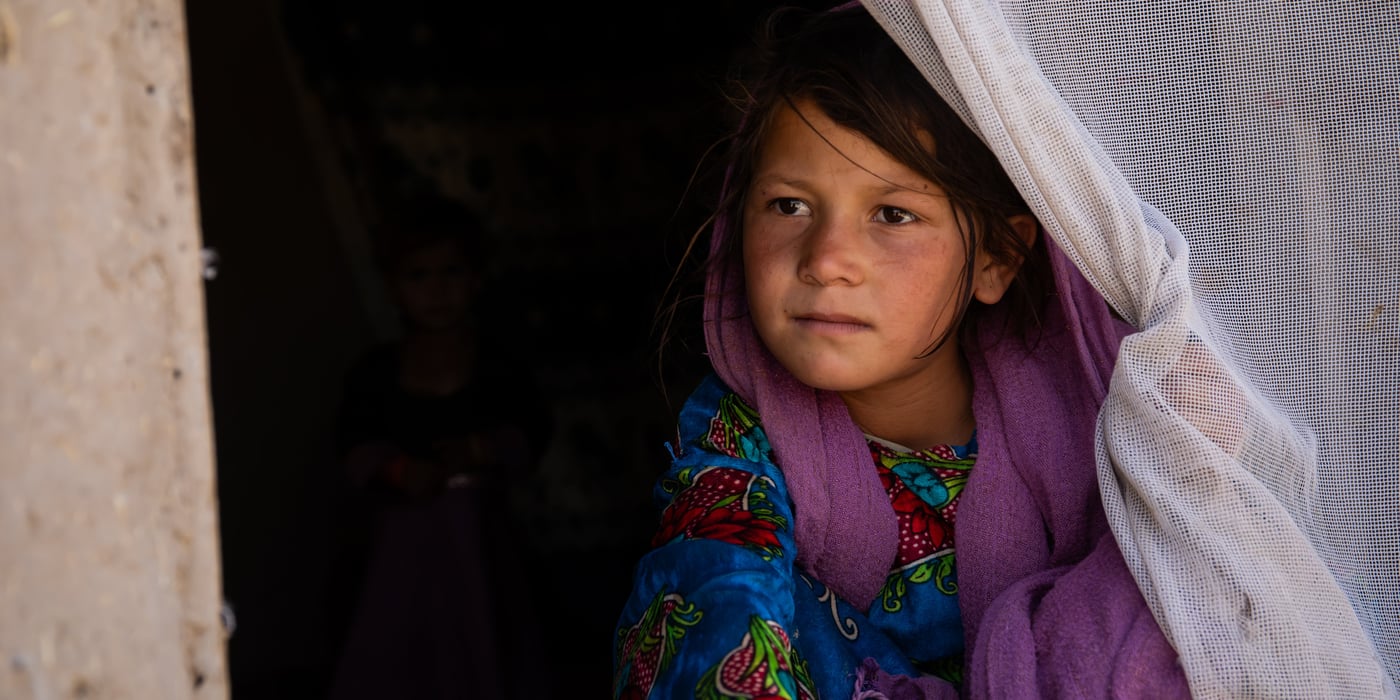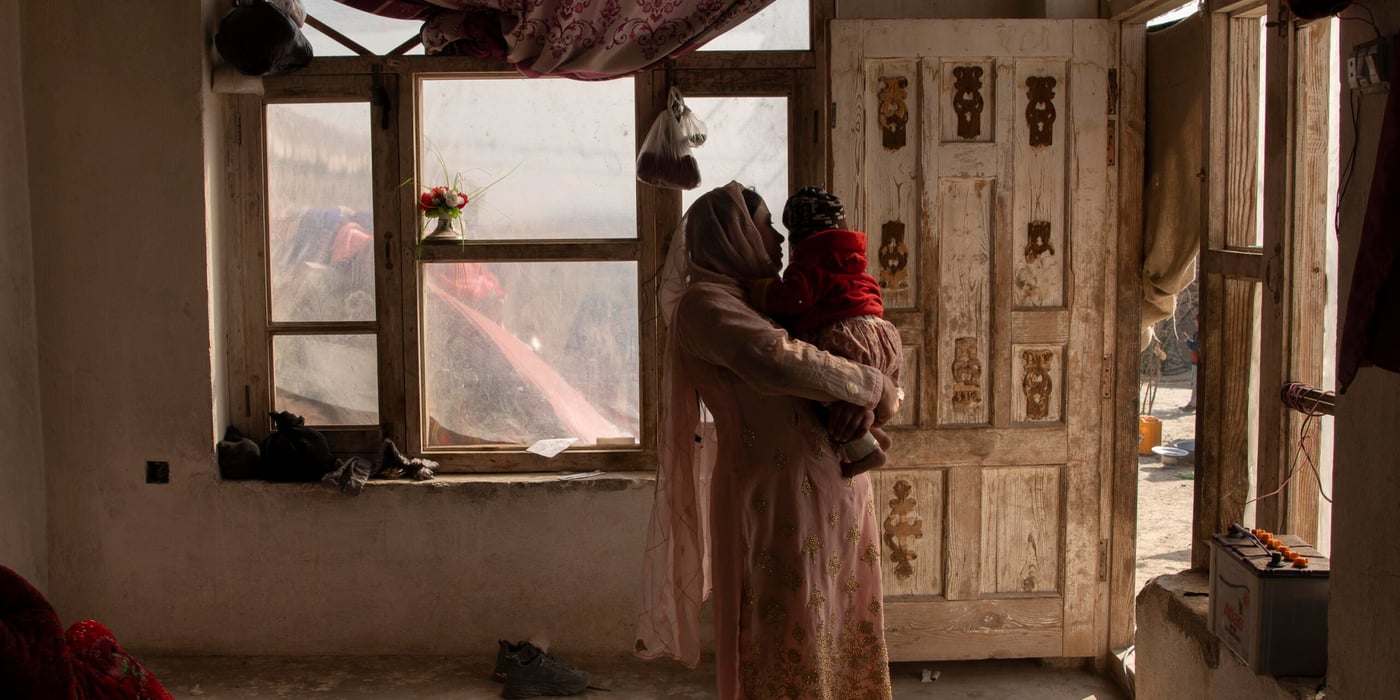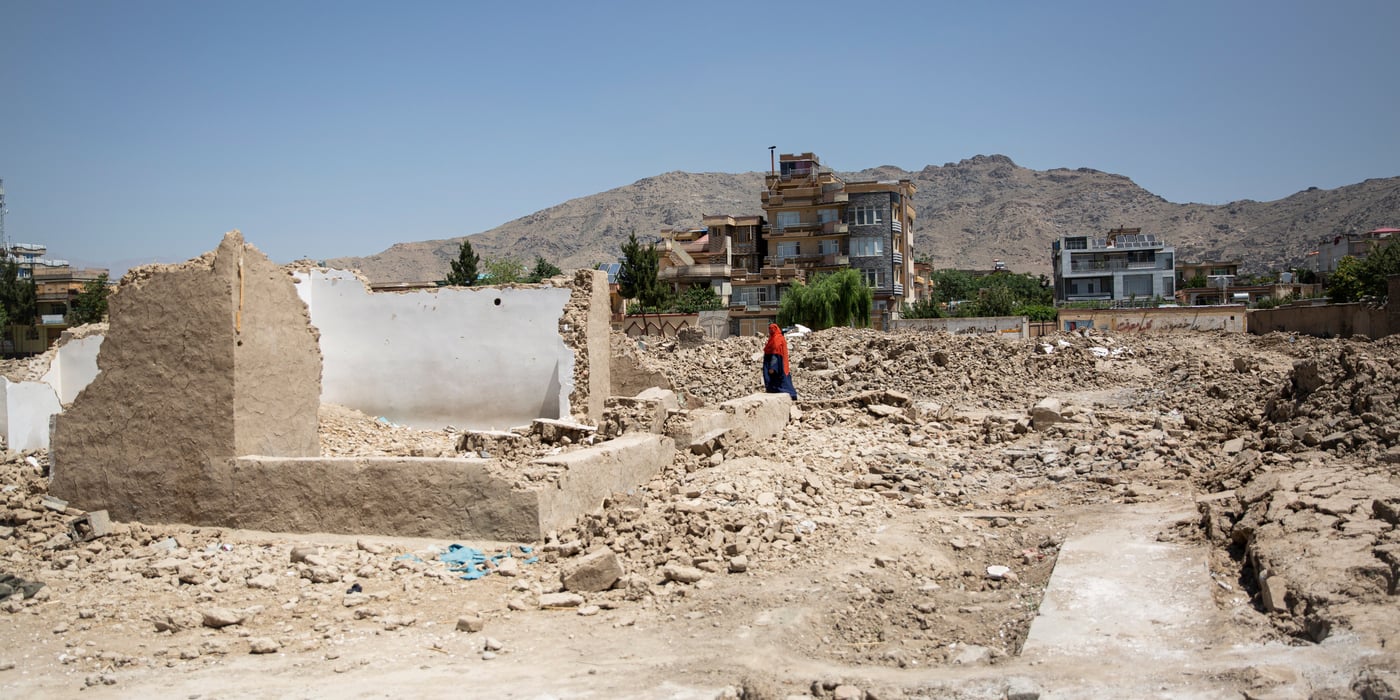
AFGHANISTAN/Uruzgan: Two children’s slides testify that this was once a school where girls and boys could blossom and play in a safe environment. But what used to be school buildings that housed teachers and children thirsty for knowledge is in ruins – with no roof, no windows and no doors.
Shamali Sola Primary School, which was occupied first by militants, then by Afghan forces, has been completely destroyed. Now the school is closed, and hundreds of girls and boys are being deprived of an education.
In this area of the country, NRC is the only international organisation on the ground providing support and assistance to protect education.TURYALAY SAHEEM, NRC’s education coordinator in Afghanistan
Now that the front lines have changed and the Taliban have left the area, the Norwegian Refugee Council (NRC) is ready to help repair the school, educate teachers and provide students with school bags, books and writing materials. But the project lacks money.

“There is a great need for education funding, but resources are very limited. In Uruzgan Province, there are very few NGOs who are active, and they have little by way of resources or funding to support the rebuilding of schools and pay the teachers. In this area of the country, NRC is the only international organisation on the ground providing support and assistance to protect education,” explains Turyalay Saheem, NRC’s education coordinator in Afghanistan.
No funding for education
The children of Afghanistan are now paying a high price. They are directly affected by the conflict in the country. Many have been displaced or are living in an area marked by uncertainty and a lack of public services. Now, many are also losing their right to an education.
“Only a very small portion of humanitarian aid goes to education in crisis areas. So far, the UN and the humanitarian aid organisations in Afghanistan have received less than ten per cent of the funds needed to secure education in crisis areas for this year,” says Anthony Neal, NRC’s advocacy manager in Afghanistan.
So far, the UN and the humanitarian aid organisations in Afghanistan have received less than ten per cent of the funds needed to secure education in crisis areas for this year.ANTHONY NEAL, NRC’s advocacy manager in Afghanistan
“This is far from enough to cover all critical hard-to-reach areas. For Chora District in Uruzgan, we have nothing,” says Neal, and continues:
“The situation is desperate, and when it comes to funding for psychosocial support for boys and girls displaced by armed conflict, the situation is even worse.
A report published by NRC last year revealed that more than half of children didn’t feel safe at school. Twelve per cent of children had experienced attacks on their schools, and many had missed exams or periods of schooling because of attacks or threats from armed groups. Consequently, many parents don’t dare send their children to school, and the girls are the ones who are hit hardest.
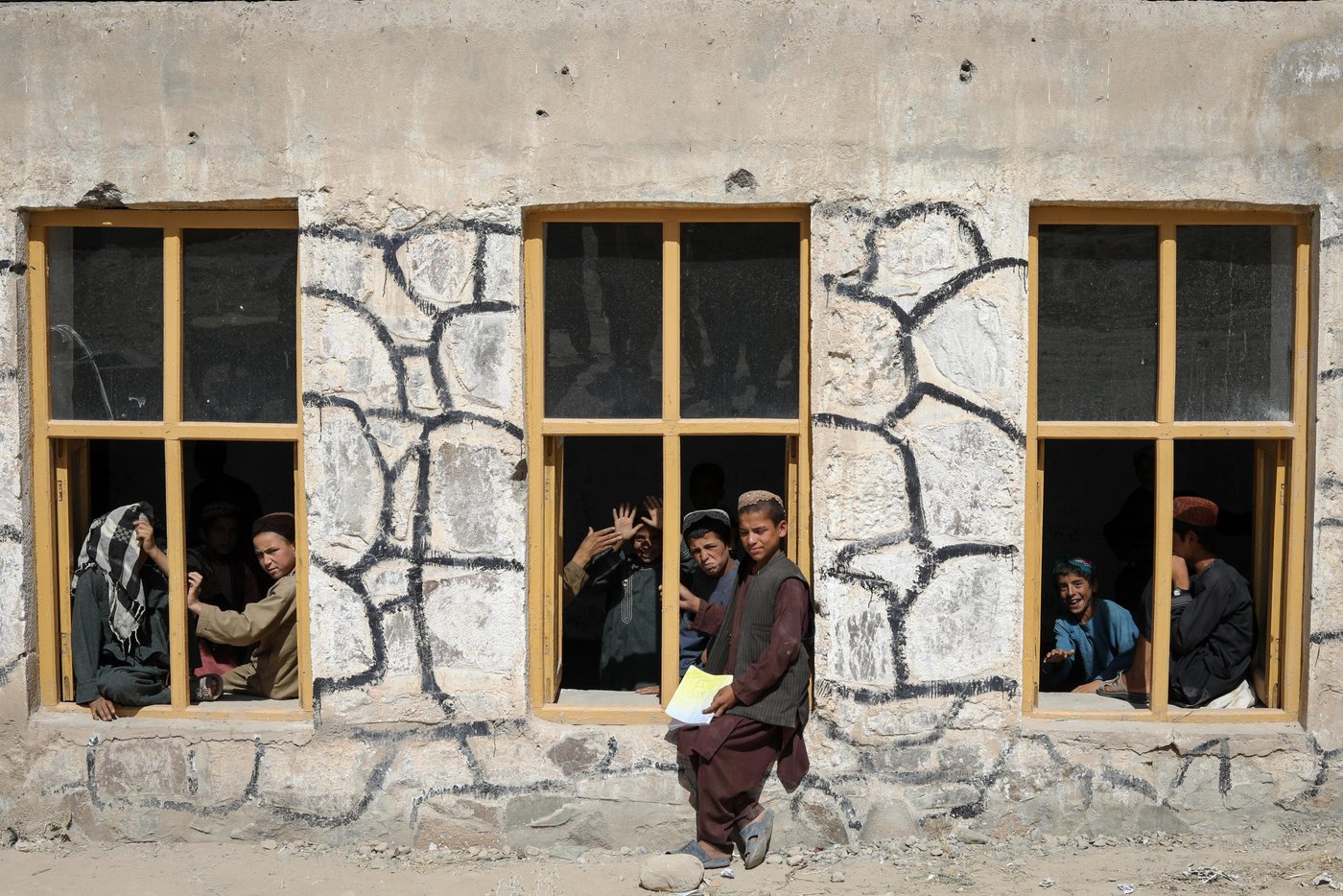
Access, but lack of funding
Uruzgan Province in the southern part of Afghanistan is one of the areas that is heavily contested by both parties to the conflict.
“To be able to operate in Chora District, we had to negotiate with both parties. Now, we have gained both trust and acceptance, and have managed to gain humanitarian access to an area where relief workers previously struggled to reach out with help. That makes it all the more disappointing when there is no will or ability to fund our efforts,” says Neal.
In Charamgar, some five kilometres north of the provincial capital Tirin Kot, the secondary school was occupied and used as a checkpoint by the Taliban for almost six months in 2015–16. The school remained shut for the whole academic year. When the Taliban were finally pushed back, the school was little more than an empty shell. All of the roofing, windows and doors had been either destroyed or stolen.
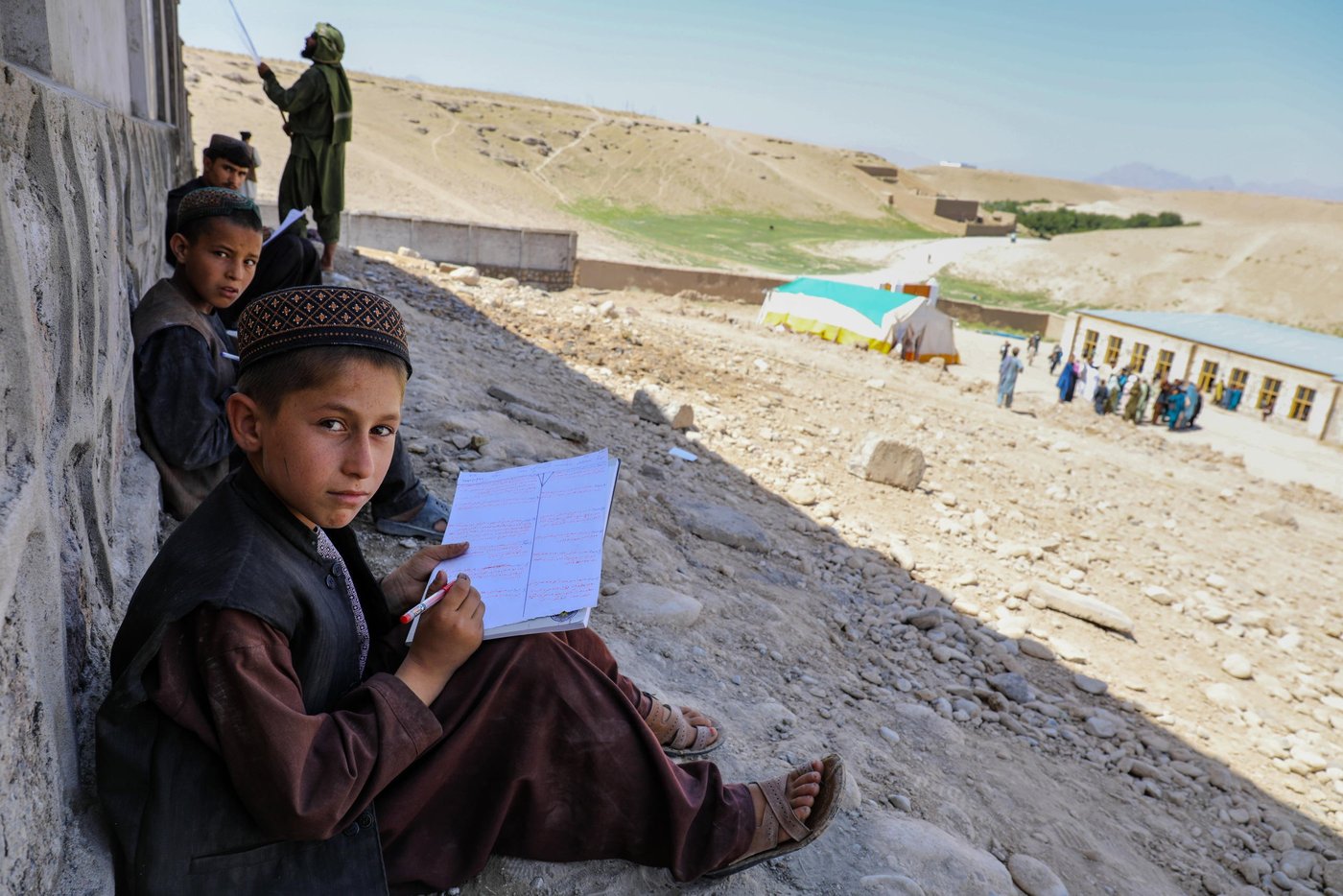
Reopening schools
NRC stepped forward and carried out some basic repair work on this and three other schools in the same area. The work included new roofing, windows and doors, as well as gates and boundary walls around the school. NRC also established a school-based protection committee for each school.
“We feel safer and more secure now after building the boundary walls and installing the gates. Now, we have a bigger school playground where the students can play and feel safe. The high and sturdy boundary walls also provide protection against any attacks or flying bullets,” explains Nida Mohammad, the headteacher of the school in Charamgar.
Read also: If you're a 13-year-old living in Afghanistan.
-
80,541people benefited from our education programme
-
131,414people benefited from our food security programme
-
35,392people benefited from our shelter programme
-
99,461people benefited from our camp management programme
-
110,287people benefited from our ICLA programme
-
28,648people benefited from our WASH programme


